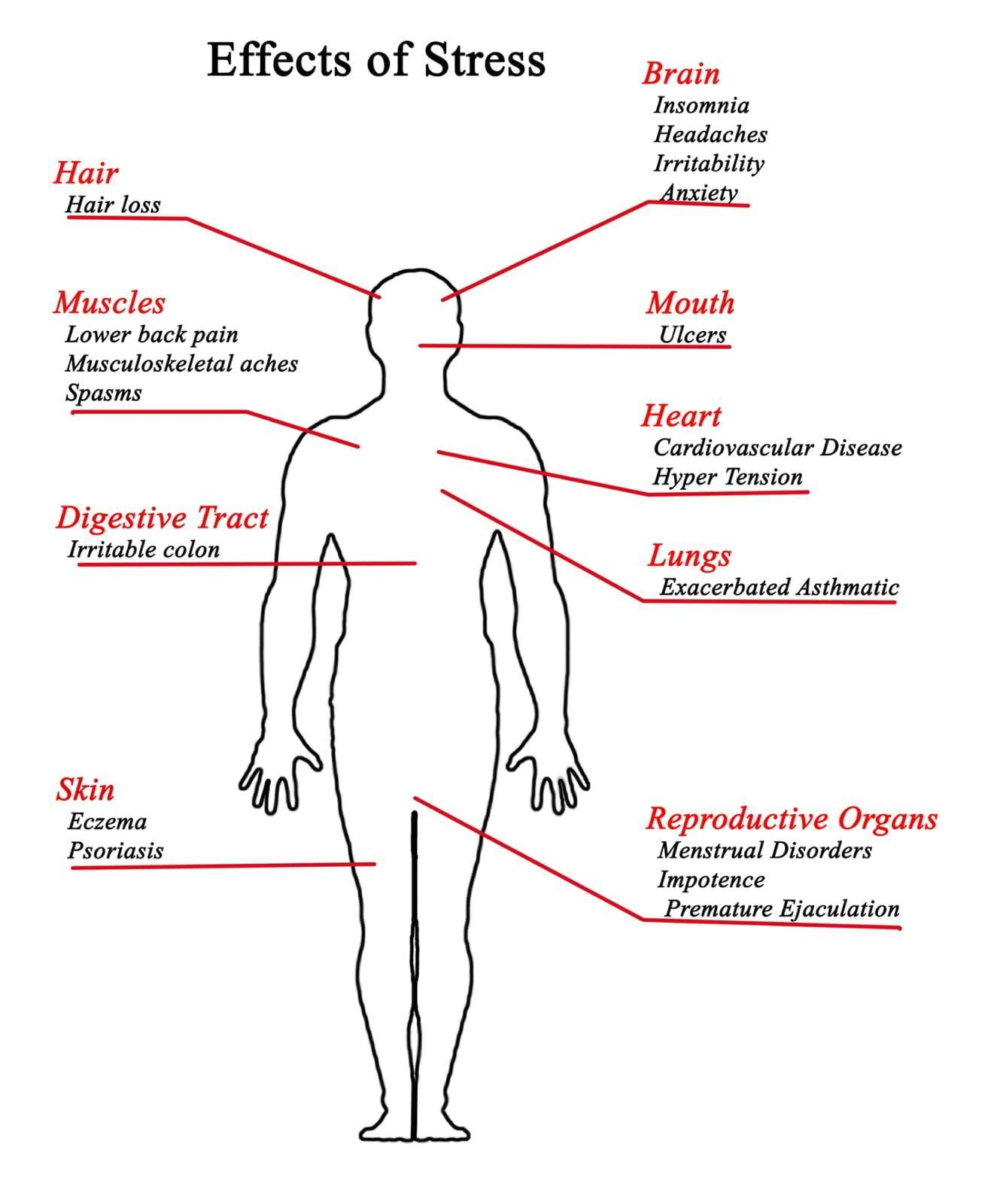
We all face stress in our daily lives. Most of it is minor stressors, little things that do nothing more than inconvenience us throughout the day. From the husband leaving his socks laying around to the kids having to be asked dozens of times to brush their teeth or put their shoes on. Sometimes, greater stressors come along and have a longer lasting impact on our lives. These can include relationship breakdowns and job losses. For most of us, we can cope with these stressors and they don’t have too much of a lasting impact on our lives. However, over time stress can lead to some rather serious effects.
The effects of stress can be both physical and mental. Physically our bodies react to stress by increasing our heart rate, increasing our blood pressure, and causing aches, pains, and tense muscles. Mentally stress can cause us to feel bad about ourselves, can lead to constant worrying and rumination, as well as forgetfulness. Or in my case, it leads to me laying in bed crying with the doona over my head. Over time both the physical and mental reactions can increase and become worse impacting how we interact with others and our ability to live our lives the way we wish to.
We all have what is called a stress threshold. This is the point at which stress becomes overwhelming for us (and sends me to bed). This threshold differs from person to person which is why my husband never seems to be affected but I feel the effects a lot sooner. An important thing to remember is that our stress threshold is not fixed. We can change it. We can increase it. When we increase it our ability to cope with everyday stress increases and thus our risk of long-term consequences can be reduced. Meditation is a proven way to improve our stress threshold. Anyone who consistently takes the time to meditate can increase their stress threshold and increase their tolerance for stress.
